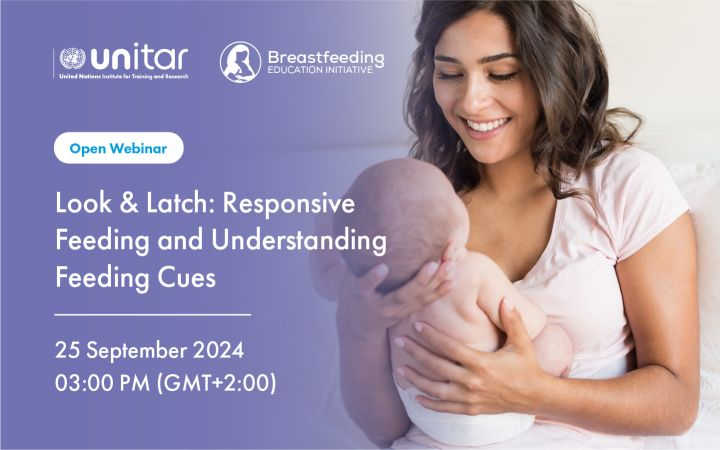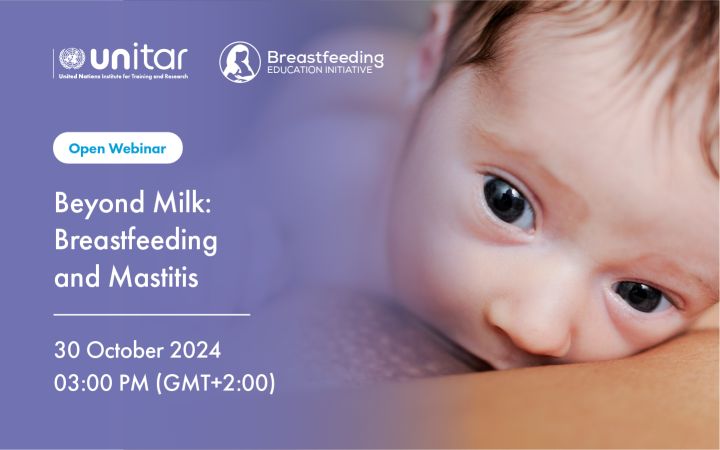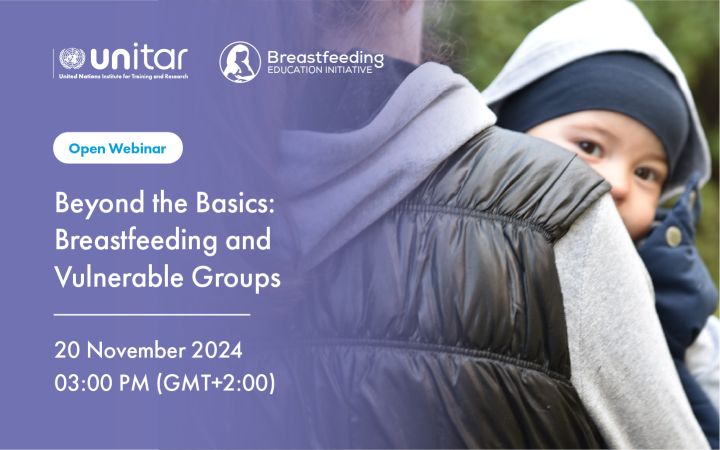Introduction
The Supporting Breastfeeding in the Community Webinar Series is a collection of free, online learning webinar events led by experts discussing some of the most pressing aspects of feeding cues, mastitis and the challenges, barriers, and solutions of breastfeeding experienced by vulnerable populations, and the UN’s work to advance the Sustainable Development Goals (SDGs).
BREASTFEEDING: SUPPORTING MOTHERS ALONG THEIR JOURNEY SERIES
LOOK & LATCH: RESPONSIVE FEEDING AND UNDERSTANDING FEEDING CUES
25 September 2024, 03:00 PM CEST – Please find the recording here.
Speakers: Mrs. Moenie Der Kleyn, Dr. Alberto Heart, Dr. Alison Bernard
Become equipped with the knowledge and skills necessary to recognise, interpret, and appropriately respond to infant feeding cues, fostering a supportive feeding environment that promotes optimal nutrition, growth and emotional well-being in infants.
Recorded in English with audio translation in French, Spanish, Portuguese, Russian and Romanian.
BEYOND MILK: BREASTFEEDING AND MASTITIS
30 October 2024, 03:00 PM CEST – Please find the recording here.
Speakers: Dr. Maria Carmen Collado, Professor Michael Abou-Dakn, Dr. Wendy Thomson, Dr. Ali Asgary
Be educated about mastitis, including its causes, symptoms, prevention and management strategies, empowering healthcare workers to support breastfeeding mothers in preventing and addressing mastitis to ensure the continuation of successful breastfeeding journeys.
Recorded in English with audio translation in French, Spanish, Portuguese, Russian and Romanian.
BEYOND THE BASICS: BREASTFEEDING AND VULNERABLE GROUPS
20 November 2024, 03:00 PM CEST - Please find the recording here.
Speakers: Mrs. Andrea Jordan, Ms. Mary Thompson, Dr. Chang Yen-li Chain, Professor Silke Mader
Explore the unique challenges and barriers faced by vulnerable groups in initiating and sustaining breastfeeding, and to develop strategies and interventions to provide tailored support and advocacy for these populations.
Recorded in English with audio translation in French, Spanish, Portuguese, Russian and Romanian.




